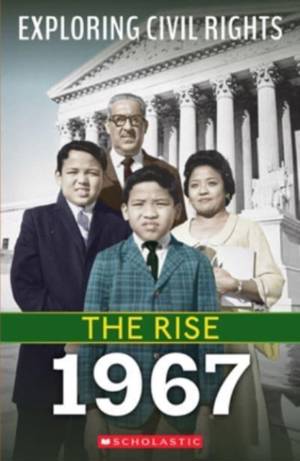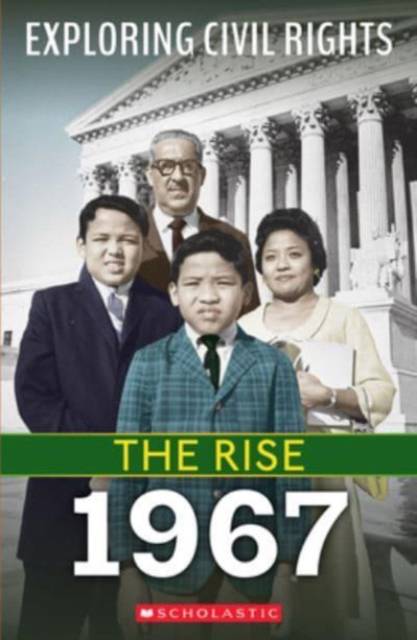
- Retrait gratuit dans votre magasin Club
- 7.000.000 titres dans notre catalogue
- Payer en toute sécurité
- Toujours un magasin près de chez vous
- Retrait gratuit dans votre magasin Club
- 7.000.0000 titres dans notre catalogue
- Payer en toute sécurité
- Toujours un magasin près de chez vous
Description
The year 1967 was pivotal to the civil rights movement. In April, Martin Luther King, Jr. delivered a speech to thousands inside a New York church condemning the Vietnam War and asking for a peaceful end. In June, the Supreme Court case Loving v. Virginia would determine whether interracial couples could legally marry in the United States. The five-day long Detroit Riot against the Black community in July would end up being one of the most violent in our country's history. And in October, Thurgood Marshall would become the first African American justice appointed to the Supreme Court, securing his place as one of the most influential figures in the fight for civil rights.
This detailed account explains why 1967 was such a critical year in the civil rights movement.
ABOUT THIS SERIES:
The years from 1967 to 1978 were critical to the civil rights movement. Resistance was often met with violence against Black Americans struggling to end discrimination and segregation. Yet the courage of those yearning for equal opportunities under the law continued to persevere and set the stage for even more progress in the coming decades. Discover how this specific time period brought about change and how it still affects us as a society today.
With stunning photographs throughout and rich back matter, each book focuses on a specific year and chronologically follows the detailed events that occurred and the changes that took place.
Spécifications
Parties prenantes
- Auteur(s) :
- Editeur:
Contenu
- Nombre de pages :
- 96
- Langue:
- Anglais
- Collection :
Caractéristiques
- EAN:
- 9781338837537
- Date de parution :
- 04-04-23
- Format:
- Livre broché
- Format numérique:
- Trade paperback (VS)
- Dimensions :
- 146 mm x 222 mm
- Poids :
- 158 g

Les avis
Nous publions uniquement les avis qui respectent les conditions requises. Consultez nos conditions pour les avis.






